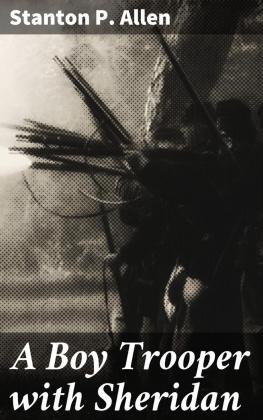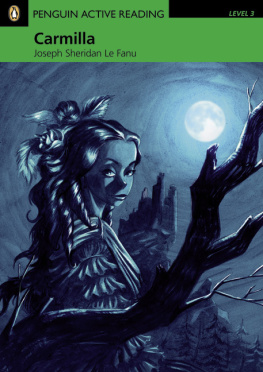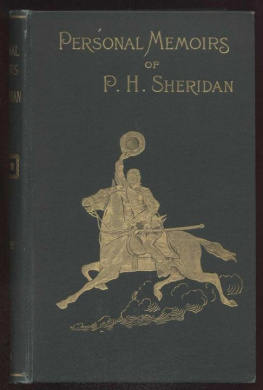CHAPTER I.
Table of Contents
More than He Bargained forThe War Fever and How it Affected the BoysA Disbanded CavalrymanGoing to School in UniformCousin Tom from Shiloh?Running Away to EnlistThe DraftIn the Griswold CavalryHabeas Corf used.

Original Size
N the local columns of the Troy (N. Y.) Daily Times of September 1, 1863, the following news:
MORE THAN HE BARGAINED FOR.
Table of Contents
A few days ago one Stanton P. Allen of Berlin, enlisted in Capt. Boutelle's company of the twenty-first (Griswold) cavalry. We are not informed whether it was Stanton's bearing the same name as the Secretary of War, or his mature cast of countenance that caused him to be accepted; for he was regarded as nineteen years of age, while, in reality but fourteen summers had passed over his youthful, but ambitious brow. Stanton received a portion of his bounty and invested himself in one of those 'neat, but not gaudy' yellow and blue suits that constitute the uniform of the Griswold boys. A few days intervened. Stanton's 'parients,' on the vine-clad hills of Berlin, heard that their darling boy had 'gone for a sojer.' Their emotions were indescribable. 'So young and yet so valiant,' thought his female relatives. 'How can I get him out?' was the more practical query of his papa. The ways the ways and means were soon discovered. A writ of habeas corpus was procured from Judge Robertson, and as the proof was clear that Stanton was only fourteen years old, he was duly discharged from the service of the United States. But the end was not yet. A warrant was issued for the recruit, charging him with obtaining bounty and uniform under false pretenses, and a release from the military service proved only a transfer to the civil power. Stanton found that he had made a poor exchange of 'situations,' and last evening gave bail before Judge Robertson in the sum of five hundred dollars.
In order that the correctness of history may not be questioned, the subject of the above deems it expedient to place on record an outline of the circumstances leading up to the incident related by the Times.
At the breaking out of the war my father resided in Berlin, N. Y., on the Brimmer farm, three miles or so from the village. I was twelve years old, but larger than many lads of sixteen. I was attacked by the war fever as soon as the news that Fort Sumter had been fired on reached the Brimmer farm. Nathaniel Bass worked for my father that year. The war fever got hold of Nat after haying was over, and one night along in the latter part of August, he said to me:
I'm going to war.
You don't mean it, Nat?
Yes, I do. The fall's work won't last long, and they say they're paying thirteen dollars a month and found for soldiers. That's better'n doing chores for your board.
If you do go I'll run away and enlist.
No; you're too young to go to war. You must wait till you're an able-bodied man-that's what the bills call for.
O, dear! I'm afraid you'll whip all the rebels before I can get there.
I cried myself to sleep that night.
How I envied Nat when he came home on a three days' furlough clad in a full suit of cavalry uniform! He enlisted September 20, 1861, in the Second New York cavalry. The regiment was known as the Northern Black-horse cavalry. Nat allowed me to try on his jacket, and I strutted about in it for an hour or so. I felt that even in wearing it for a short time I was doing something toward whipping the Southerners. But Bass's furlough came to an end, and he returned to his regiment.
Nat came back in time to help us plant in the spring of 1862. The regiment went as far as Camp Stoneman, near Washington, where it remained in winter quarters. It was not accepted by the United States Government, and was never mounted. The reason given was that the Government had more cavalry than it could handle, and the Northern Black-horse cavalry was disbanded. The regiment was raised by Colonel Andrew J. Morrison, who subsequently served with distinction at the head of a brigade.
Nat came home chock-full of war stories. He was just as much a hero in my estimation as he would have been if the rebels had shot him all to pieces. I never tired of listening to his yarns about the experiences of the regiment at Camp Stoneman. He had not seen a rebel, dead or alive, but that was not his fault. Nat was something of a singer, and he had a song describing the adventures of his regiment. The soldiers were referred to as rats. I recall one verse and the chorus:
The rats they were mustered,
And then they were paid;
'And now,' says Col. Morrison,
'We'll have a dress parade.'
Lallv boo!
Lally boo, oo, oo,
Lally bang, bang, bang,
Lally boo, oo, oo,
Lally bang!
I would join in the chorus, and although I did not understand the sentimentif there was any in the songI was ready to adopt it as a national hymn.
I was the proudest boy in the Brimmer district at the opening of school the next winter. I fairly paralyzed the teacher, George Powell, and all the scholars, when I marched in wearing Nat's cavalry jacket and forage cap. He had made me a present of them. I was the lion of the day. The jacket fitted me like a sentry-box, but the girls voted the rig perfectly lovely. Half a dozen big boys threatened to punch my eyes out if I did not leave that ugly old jacket at home. I enjoyed the notoriety, and continued to wear the jacket. But one day Jim Duffy, a boy who worked for Tom Jones, came into the school with an artillery jacket on. It was of the same pattern as the jacket I wore, but had red trimmings in place of yellow. The girls decided that Jim's jacket was the prettier. I made up my mind to challenge Jim at the afternoon recess, but my anger moderated as I heard one of the small girls remark:
But Jim ain't got no sojer cap, so he ain't no real sojerhe's only a make-b'lief.
Sure enough! chorused the girls.
Then I expected Duffy to challenge me, but he did not, and there was no fight.
That same winter Thomas Torrey of Williamstown came to our house visiting. Tom was one of the first to respond to the call for volunteers to put down the rebellion. He was in the Western army, and fought under Grant at Shiloh. He received a wound in the second day's fight, May 7, 1862, that crippled him for life. He had his right arm extended to ram home a cartridge, when a rebel bullet struck him in the wrist. The ball shattered the bone of the forearm and sped on into the shoulder, which it disabled. Tom's good right arm was useless forever after.
Tom was a better singer than Bass, and as we claimed him as our cousin, it seemed as if our family had already shed blood to put down the rebellion.
While the wounded soldier remained at our house and told war stories and sang the patriotic songs of the day, my enthusiasm was kept at one hundred and twenty degrees in the shade. I made up my mind that I would go to war or bust a blood vessel. I assisted in dressing Tom's shattered arm once or twice, but even that did not quench the patriotic fire that had been kindled in my breast by Bass's war stories and fanned almost into a conflagration by Tom's recital of his experiences in actual combat.















